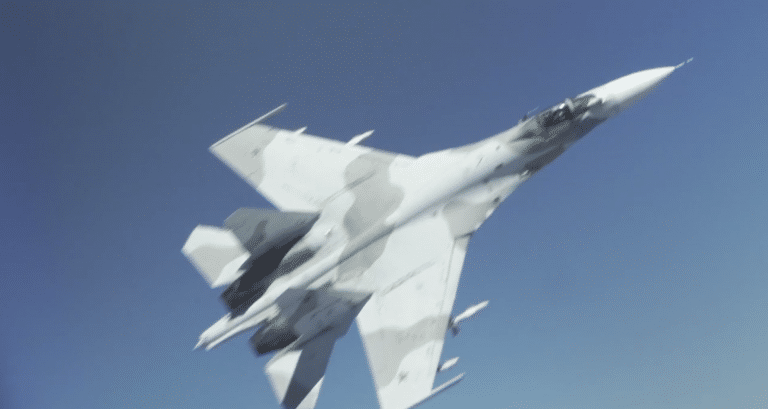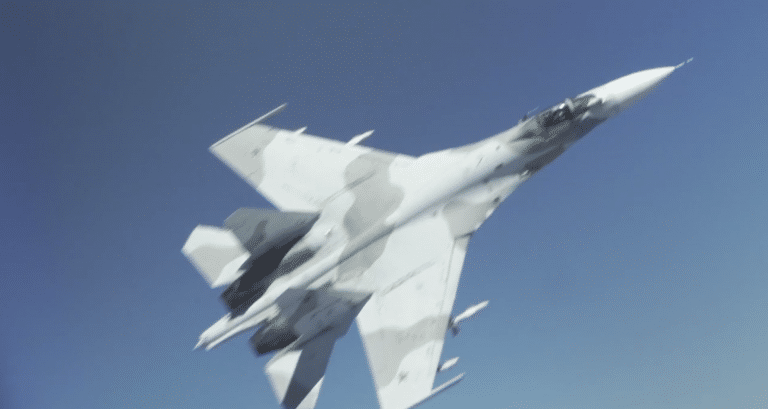
This article was originally published by Radio Free Europe/Radio Liberty and is reprinted with permission.
Russian warplanes have joined Syrian air forces to bomb Islamist-led rebels who had taken much of the northwestern city of Aleppo in the biggest challenge to President Bashar al-Assad’s rule in the battle-torn Middle East nation in several years.
Iran, meanwhile, said on November 30 that the rebels had attacked its consulate in Aleppo, calling it “aggression by terrorist elements,” although it said there were no injuries and provided few details about the incident.
The Russian and Iranian foreign ministers expressed support for longtime ally Syria, according to Iranian state media, which quoted Iran’s Abbas Araqchi as telling Russia’s Sergei Lavrov in a call that the attacks were part of an Israeli-U.S. plan to destabilize the region.
The air strikes came a day after Islamists and their Turkish-backed allies breached Syria’s Aleppo in a surprise offensive against forces of the Assad government. Reports on the ground said the rebels had captured much of the city, although details remained sketchy.
The Syrian military confirmed that rebels had entered Aleppo. It did not confirm the air attacks, but Russia’s Defense Ministry said its air force carried out strikes on the rebels.
Kremlin spokesman Dmitry Peskov said on November 29 that Russia regarded the rebels’ actions as a violation of Syria’s sovereignty.
“We are in favor of the Syrian authorities bringing order to the area and restoring constitutional order as soon as possible,” he said.
Reuters quoted two Syrian military sources as saying that Russian and Syrian warplanes had targeted rebel sites in an Aleppo suburb on November 30. The sources said the Kremlin has promised Syria extra military aid, expected to arrive within two to three days.
The Syrian Observatory for Human Rights, a war monitor, said the fighters, led by the Islamist extremist Hayat Tahrir al-Sham (HTS) movement, took control of “half of the city of Aleppo,” forcing government forces to pull back.
HTS in the past has had links to the Al-Qaeda and Islamic State (IS) extremist groups, although many leaders reportedly split off from those organizations. It was formerly known as Jabhat al-Nusrah and the Al-Nusrah Front, which was Al-Qaeda’s affiliate in Syria and has been deemed a terrorist organization by the UN and the United States.
In May 2018, the U.S. State Department added HTS to the Al-Nusrah Front’s existing December 2012 designation as a foreign terrorist organization.
The rebels’ offensive began on November 27, prompting the Syrian military to close all main roads in and out of the city.
Rami Abdel Rahman, director of the Syrian Observatory, told RFE/RL’s Radio Farda that the armed rebels had been preparing for the operation since September, but Turkey had so far prevented it from taking place.
The Aleppo violence breaks a pause in the Syrian civil war, which has been mainly quiet over the past four years.
The conflict involved the Assad government backed by Moscow and Tehran against Syrian-Kurdish rebels supported by the United States, while Turkey aided separate rebel groups. The U.S. military still has a number of troops deployed in Kurdish-held areas of Syria.
Terror organizations, including Islamic State, also were involved in fighting.
Russia, Turkey, and Iran signed an agreement in 2019 to freeze the conflict at then current positions.
The Syrian Observatory said at least 16 civilians were killed on November 30 when an air strike, likely carried out by Russian warplanes, hit Aleppo. It said the attack “targeted civilian vehicles” at an intersection, leaving an additional 20 people wounded.
This incident brings the total number of fatalities in the city over the past four days to 327.
The British-based observatory compiles its information from battlefield sources and has been influential throughout the Syrian civil war.
Syria’s army command acknowledged that rebels had entered Aleppo. Rebels had previously controlled the city before being driven out by Russia-backed forces eight years ago.
“The large numbers of terrorists and the multiplicity of battlefronts prompted our armed forces to carry out a redeployment operation aimed at strengthening the defense lines in order to absorb the attack, preserve the lives of civilians and soldiers, and prepare for a counterattack,” the Syrian Army said.
The fighting comes amid fears of a wider war in the Middle East.
Israeli forces in Gaza are battling extremists from Hamas – deemed a terrorist organization by the United States and the EU – and a cease-fire hangs in the balance in Lebanon, where Israel has struck the leadership of Hezbollah, also designated a terrorist group by Washington. The EU blacklists Hezbollah’s military arm but not its political wing.
Israeli attacks have also taken place against Iran-backed Huthi rebels in Yemen.
American Military News Rephrased By: InfoArmed
